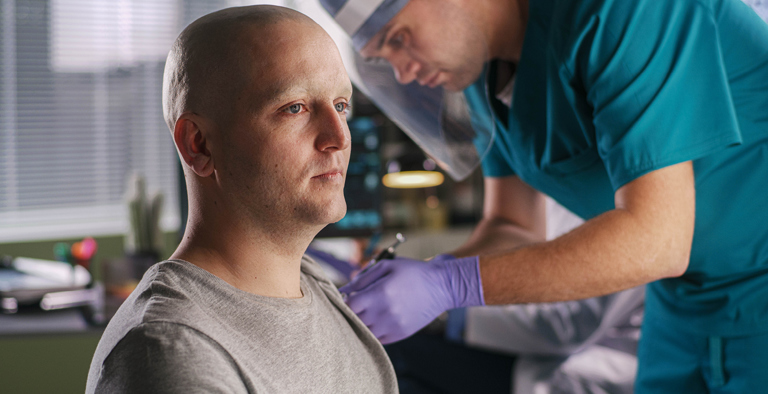Colorectal cancer, also called colon cancer, is one of the most common cancers diagnosed in both men and women. The chronic disease occurs when there’s an uncontrollable growth of cells starting in the colon (large intestine) or the rectum.
Between birth and death, 1 in 23 men and 1 in 25 women develop colorectal cancer in the United States, according to the American Cancer Society.
If caught in time, colorectal cancer is one of the most curable cancers.
Common Risk Factors
- Inflammatory bowel diseases
- Personal or family history of polyps or colorectal cancer
- Genetic syndromes
Learn more about risk factors from the CDC.
Risky Lifestyle Behaviors
- Lack of regular exercise
- Poor diet choices
- Alcohol or tobacco use
- Being overweight
Learn more about lifestyle risks from the CDC.
The recommended screening age for colorectal cancer is now starts at age 45 rather than 50, according the American Cancer Society.
Screening Options
Screening for colorectal cancer could save your life as it can find polyps that may become cancerous, and it can catch other early stages of cancer. If your screening comes back showing evidence of polyps or cancer cells, the sooner you can get treatment, the better. Follow-up tests and visits may be necessary.
If you are not at an elevated risk of getting colon cancer, these are the recommended screening options. If you are at risk, you should talk to your doctor about a modified screening plan.
Take-Home Stool Tests
Every 1-3 years
Between the three major stool tests, you can detect blood and/or altered DNA in your stools. Collect the sample in your home and send it back to the lab for testing.
The three types are the guaiac-based fecal occult blood test (gFOBT), fecal immunochemical test (FIT) and FIT-DNA test.
Colonoscopy
Every 10 years
During a colonoscopy, a doctor will examine the inside of your colon for polyps and cancer by inserting a long, lighted tube inside the rectum.
Another option is the flexible sigmoidoscopy, which only checks the lower third of the colon. (Every 5-10 years with yearly fecal immunochemical tests at home)

